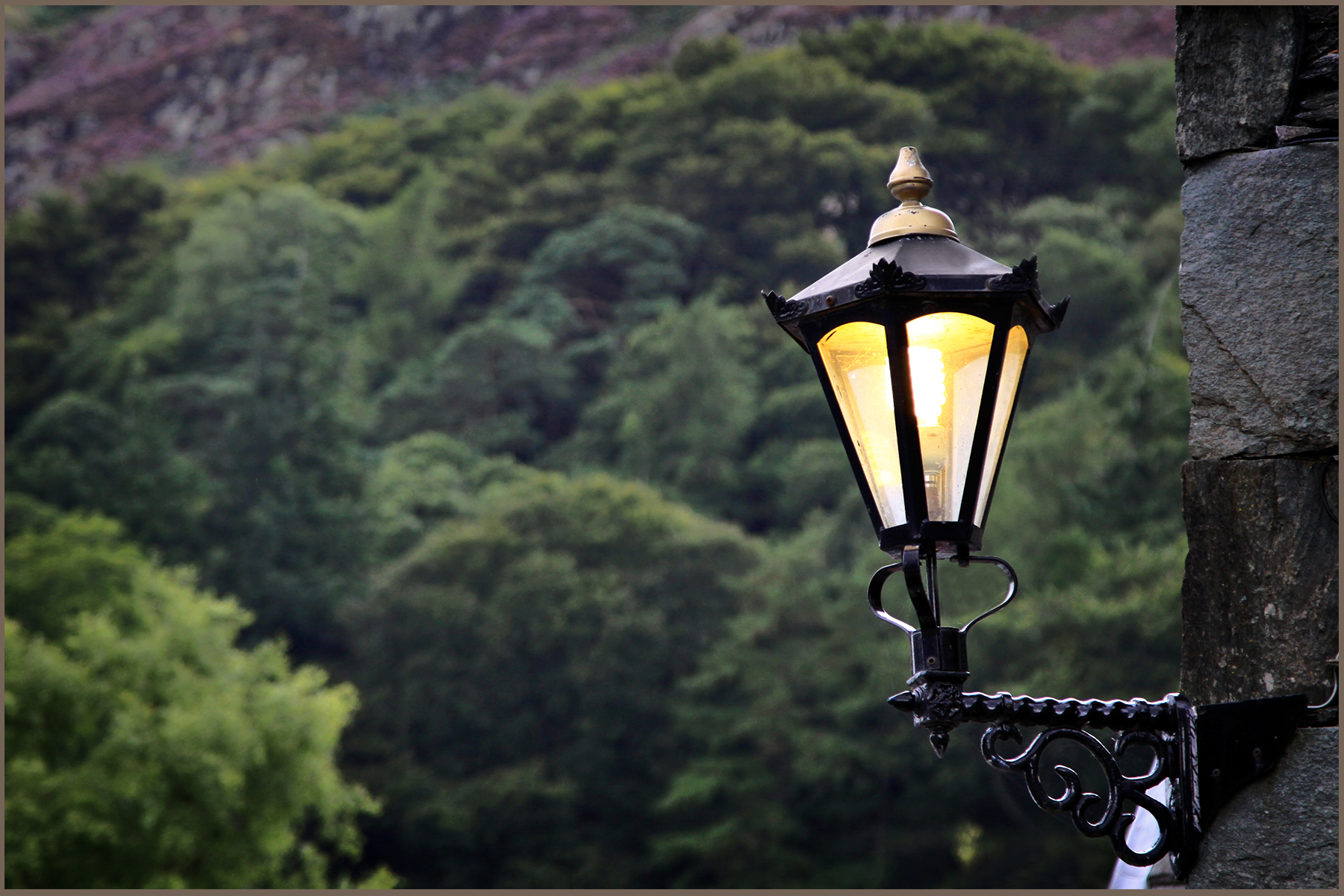One of my lifelong dreams is to open a quaint little inn–a bed and breakfast surrounded by orchards, or mountains, vineyards, or moors (the ideal landscape is always changing), where visitors encounter nature’s beauty and find rest from this weary world in lavender-laced sheets. In the evenings, my imaginary community of guests–diverse and interesting people from around the globe–gather by the fireplace in the cozy library to share stories over glasses of ruby port. It’s a romantic dream, but the B&B-style inns that typically exist in most places are a far cry from what inns were in ages past. I never thought about this until I walked part of the Camino de Santiago pilgrimage route, a three-week trek in which my companions and I found shelter in albergues (hostels or inns specifically for pilgrims), some the same buildings pilgrims slept in back in the Middle Ages. These inns were a welcomed respite after walking twenty kilometers beneath the intense Spanish sun, but the draw of such shelters was not the spa package or the homemade blueberry muffins (honestly, we were happy to have a warm bed and considered it a “win” if the place didn’t smell like feet).
A stay in a pilgrim’s inn is not an escape from the grit and grime of reality, but an opportunity to refresh body and soul in order that we might find the courage to continue walking through it. A pilgrim’s inn is where we gather up the strength to keep seeking.
Such a shelter is not intended as an extended getaway where we bask in luxury, and perhaps because of that, the laughter and stories heard within its walls are all the more precious. Our time in a pilgrim’s inn is short and the company we find there fleeting.
The road is always calling.
But why this pull to keep walking? Why does Scripture so often refer to us as “strangers and pilgrims” on this spinning rock that God did design to be our home and promises to one day restore? The “life is a journey” metaphor is undoubtedly a cliché, but clichés wouldn’t exist if they didn’t scratch at some truth. For the Christian, life is not merely a journey, however; it is a pilgrimage. Unlike tourism, which tends to be a form of consumption and is ultimately about the Self (which isn’t to say the journey doesn’t sometimes make us better people in the end), a pilgrimage, rightly understood, is always the seeking of Someone Else.
The British writer, artist, and mystic Caryll Houselander writes about this quest in her exquisite meditation on the life of Mary and the sub-creator within all of us, The Reed of God:
“If, instead of using the expression “spiritual life” we used “the seeking,” we should set out from the beginning and go on to the end with a clearer idea of what our life with God will be on this earth; and we should be less vulnerable, that is to say, less easily shattered by disillusionment and discouragement.” (121)
Less discouraged and disillusioned
We would be less discouraged and disillusioned, Houselander goes on to describe, because we would recognize that the discontent we often experience in this life is meant to spur us onward. Yes, a pilgrim must pause for rest and rejuvenation–it’s impossible to walk for days on end–but he does not view his sabbath as a vacation, an escape from what is most Real. No matter how comfortable the bed or how attentive the hospitalero who welcomes him into the inn, the peregrino would never mistake this cozy dwelling for his destination.
According to C.S. Lewis in The Problem of Pain, it is not merely discontent, but actual suffering, that keeps us walking along The Way.
“The settled happiness and security which we all desire, God withholds from us by the very nature of the world: but joy, pleasure, and merriment, He has scattered broadcast. We are never safe, but we have plenty of fun, and some ecstasy. It is not hard to see why. The security we crave would teach us to rest our hearts in this world and oppose an obstacle to our return to God: a few moments of happy love, a landscape, a symphony, a merry meeting with our friends, a bath or a football match, have no such tendency. Our Father refreshes us on the journey with some pleasant inns, but will not encourage us to mistake them for home.”
Pleasant Inns
So, if God provides us with moments of joy and even ecstasy–“pleasant inns,” as Lewis says–but withholds comfort and security in order to keep us searching, then Whom do we seek? Christ, of course, though Houselander provides an image of Christ at a very specific, and often overlooked, time in His life: Christ the lost Child. The precocious youth Mary searched for when He decided to remain in the temple courts of Jerusalem while the rest of the Holy Family continued their own pilgrimage of the Passover Festival (Luke 2:41-52). Houselander uses this image of the lost Child because “being in Christ at all implies a state of childhood in the soul, a child’s almost infinite capacity for experiencing joy and sorrow completely” (167). And this is where The Reed of God becomes particularly interesting for those of us who believe we have a vocation to create beauty and art. That is because our longing to create is really just a longing to once again bear Christ into the world.
Many of us have been taught from an early age that the Christian life is about imitating Christ, but Houselander suggests this isn’t quite right. We are to follow Christ, yes, but we are to imitate Mary, who said “yes” to God and gives us a model of what it means to trust Him fully, what it means to have faith–the kind of faith that makes space for Christ to be born. But once he is born, Mary must search for her Son continually, not only in the temple, but in the faces of every crowd and for the rest of her life. To seek the lost Child is to seek the beauty of the Garden and the beauty of the Manger; it is the search for simplicity, trust, and innocence. Houselander understands Christ’s Incarnation not as a sophisticated doctrine or a complex theological argument, but as a folk song, a poem, grasped in its fullness only when we adopt a “child’s delight in loveliness,” a child’s “spirit of wonder.” This is because Christ Himself was a poet, “and all through His life the Child remains perfect in Him.” She continues:
“It was the poet, the unworldly poet, who was King of the invisible kingdom; the priests and rulers could not understand that. The poets understand it, and they, too, are kings of the invisible kingdom, vassal kings of the Lord of Love.” (170)
Emissaries from Home
When we seek to give Christ flesh in this broken world through our stories, our paintings, and our songs, we become vassals of the invisible Kingdom, doing good work on behalf of our King. Or, as Cultivating’s own Lancia E. Smith put it in a recent talk for the Anselm Society, when we live out our creative vocations, we serve as “emissaries from home” who bear the Light in even the darkest places.
One of the most difficult things about life today is this world is constantly telling us that the many “inns” all around us, those with Instagram-worthy views and Egyptian cotton sheets– happiness, health, wealth, companionship, meaningful work, personal fulfillment– are our homes. They are not only what we should seek, but what we should expect, and if we do not possess them, then something must be wrong with us. When we believe this lie, it is so easy to slip into despair and disillusionment, even though Jesus told us plainly: “In this world you will have trouble.” At the other extreme, if we regard this life merely as one long trial, a time of suffering and purgation, it’s easy to miss out on the blessings and beauty that mark this journey, or the way God uses our discontent to call us– like a playful Child who runs ahead laughing– a little farther down the pilgrim’s path.
Perhaps art, or really any act of creation– those timeless moments of kairos when the earth stops spinning and we are fully present–are the “inns” we most need, temporary shelters provided by a loving Father.
A night in such an inn is not time wasted in distraction, but in rest that will eventually bear fruit. For in the Father’s inns, we are waiting– waiting for the next dispatch marked with the Spirit’s royal seal, our summons to resume the journey of carrying the King’s glory into the world until we find the lost Child who is always, always beckoning us “further up and further in.”
Ashlee Cowles is the author of Beneath Wandering Stars and Below Northern Lights. She writes about motherhood as creative magic at The Most Creative Thing.
Leave a Reply
A Field Guide to Cultivating ~ Essentials to Cultivating a Whole Life, Rooted in Christ, and Flourishing in Fellowship
Enjoy our gift to you as our Welcome to Cultivating! Discover the purpose of The Cultivating Project, and how you might find a "What, you too?" experience here with this fellowship of makers!


I absolutely love this!
Thank you!
And I cannot wait to read and share Beneath Wandering Stars and then share it with my teen girls. Creative. Brilliant. Inspiring. So good.♥️
Thank you for this encouragement today. It has blessed me beyond words.
Thank you! I shared this on FB. Such beautiful truth.
“our longing to create is really just a longing to once again bear Christ into the world.”
Ashlee, this is wonderful. Thank you!